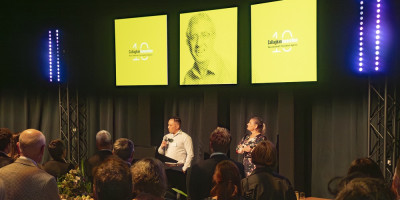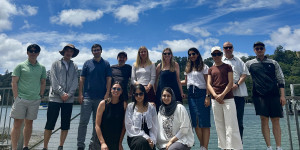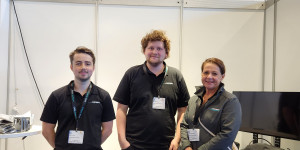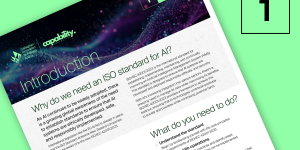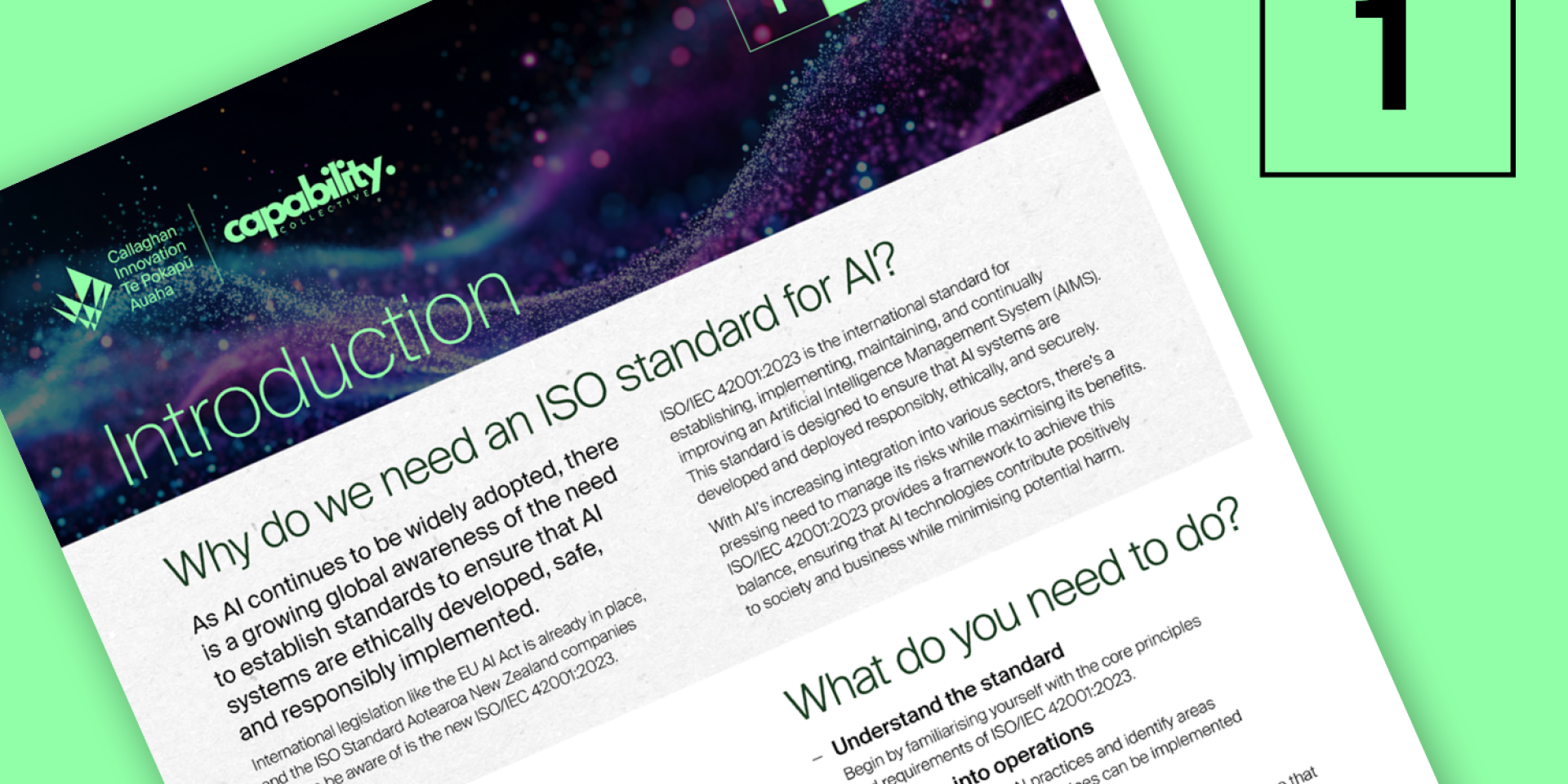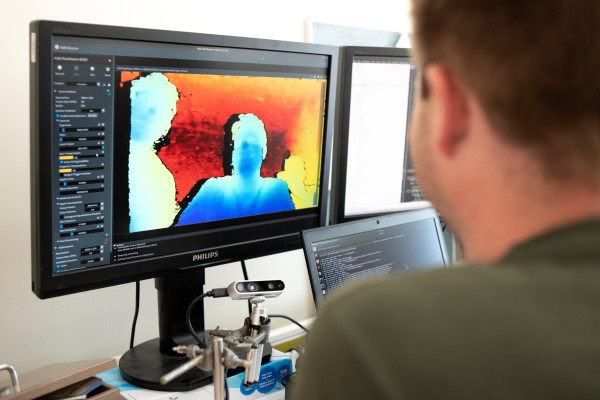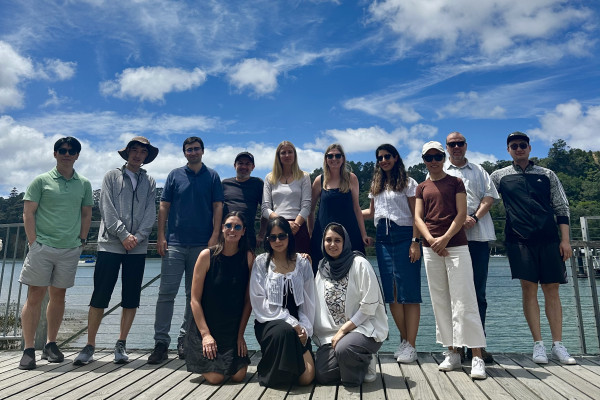Callaghan Innovation is supporting the development of international AI standards to enable more Kiwi businesses to make the most of this transformative technology.
The International Organisation for Standards (ISO) published its first AI standard last year.
“Understanding and applying ISO/IEC 42001:2023 is not just a compliance exercise. It’s crucial to maintaining a competitive edge in this rapidly evolving and transformative technology area,” says Callaghan Innovation Digital and AI Whare Head Sarah Sun.
Sarah Sun is a member of the Aotearoa New Zealand National Mirror Committee for AI, which brings together stakeholders to communicate a national position on AI to the ISO.
Mirror Committee Head and business advisory Capability Collective Chief Operating Officer Craig Pattison says it’s critical that Kiwi businesses seek to make the most of AI.
“It used to be that artificial intelligence was considered an opportunity in the market. And now, it's a necessity, because it's become ubiquitous over a very short time. This means if you’re not using AI, you’re at a disadvantage because your competitors will be.”
Research published by the AI Forum earlier this year reported nearly 70 per cent of Kiwi businesses surveyed were using AI, with generative AI being the most common type.
Sarah Sun says ISO/IEC 42001:2023 provides high-level guidance on how and what circumstances businesses should consider AI procurement, development and deployment, the sorts of decisions AI might make, and aspects like privacy and data.
With AI’s increasing integration into various sectors, there’s a pressing need to manage its risks while maximising its benefits. The standard provides a framework to achieve this balance, ensuring that AI technologies contribute positively to businesses and society.
“So, for example, it can help a business using an AI system to screen job candidates because sticking to the standard can ensure they’re avoiding potential biases.
“By adhering to the standard, businesses can also be sure they’re meeting their domestic and international legal requirements, protecting them from regulatory penalties and reputational damage. At the same time, they’re able to boost market confidence that they’re committed to the highest ethical and operational standards,” says Sarah Sun.
Callaghan Innovation, in collaboration with the Capability Collective, has developed a series of ISO/IEC 42001:2023 fact sheets to help businesses familiarise themselves with the standard, assess their current AI practices and implement the standard’s guidelines.
“Together we’re on a mission to help Kiwi businesses understand the standard is not a handbrake but an accelerator for their participation in the increasingly AI-oriented global economy.
“By demonstrating they are developing responsible AI, Kiwi businesses will be set to succeed with AI in any jurisdiction, in any market, at any speed, or scale,” says Craig.
The Aotearoa New Zealand National Mirror Committee for AI members are Sarah Sun (Callaghan Innovation), Albert Bifet (University of Waikato), Maria Mingallon (Mott MacDonald) and (Chair) Craig Pattison (Capability Collective). The Committee is currently seeking new members. Find out more.







